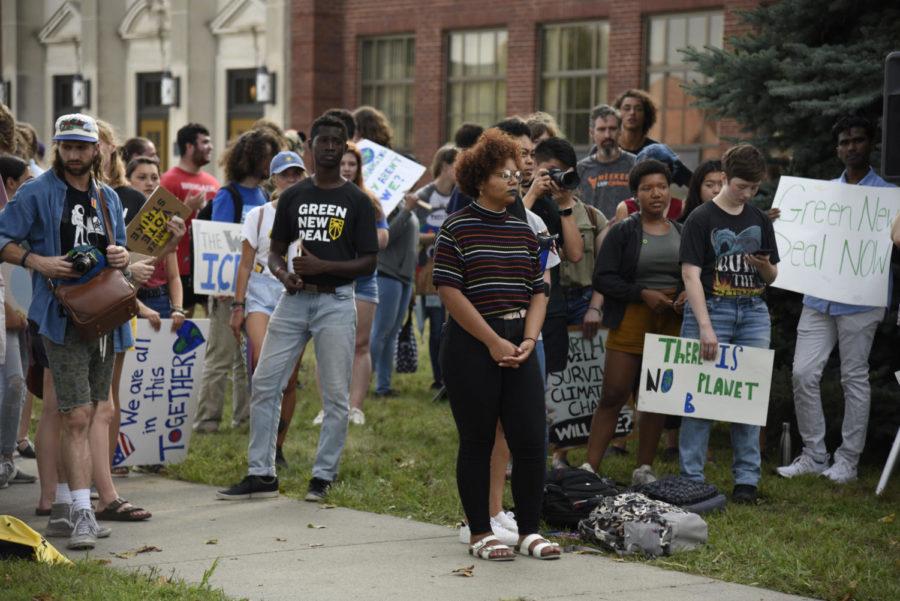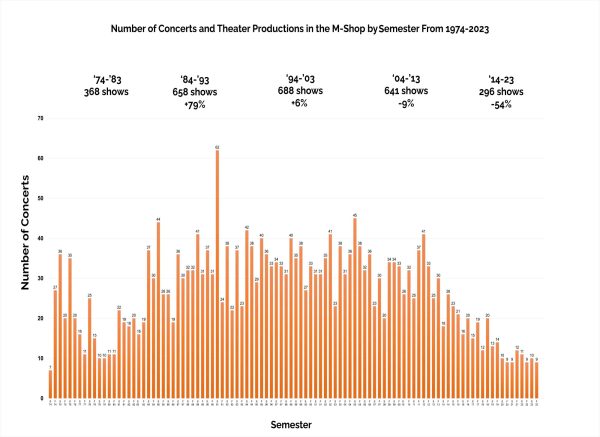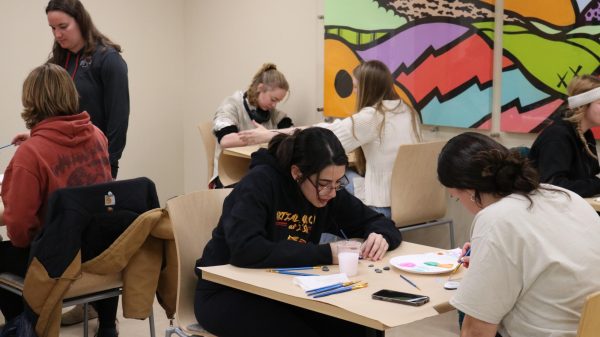Iowa State community on sustainability awareness
Caitlin Yamada/ Iowa State Daily
Ames held a climate protest from 3 p.m. to 5 p.m. Sept. 20 at Ames City Hall. Different signs and speeches encouraged attendees to change habits to help the environment.
October 2, 2019
Ames joined the rest of the world in participating in the Climate Strike on Sept. 20. The strike was aiming to raise awareness over the lack of action toward climate change.
Mike Rentz, Iowa State lecturer of mammalogy, sustainability and wildlife, said that he knew of the Climate Strike but hadn’t heard of any discussion of the Climate Strike following the event.
Rentz was aware that the strike was scheduled to occur and was hoping students would attend, being a prior activist himself. He’s followed the global efforts of the Climate Strike and has admiration for the lead activist, Greta Thunberg.
“I think Greta Thunberg is one of my new heroes,” Rentz said. “The fact that there were an estimated four million [participants] world wide – that gives me hope. Hopefully they can shame my generation into doing stuff a little bit more.”
He said he doesn’t feel as strongly about the local strike, though. He said that he applauds everyone who attended the strike in Ames, but the event needs to be more than just a “one and done” event.
“The rallies and marches are great, but it’s using those to forward a message or prompt an action that’s the hard part,” Rentz said. “Unless you’re also registering people to vote or write a letter, unless you have overwhelming numbers like the global strikes, you have to be able to tie an action to it.”
Merry Rankin, director of sustainability, and Ayodeji Oluwalana, recycling coordinator, said that although the Climate Strike may not be a topic of discussion, it still is an important step in bringing climate change awareness in the personal lives of students.
They said that the climate crisis is not just a one-day thing, but it is continuous.
“We can talk climate change for as long as we want, but people won’t resonate with that message until you attach that crisis to them personally,” Oluwalana said. “People shouldn’t worry about if the strike had a lasting impact; I think we should focus on what we can do to continue to build on that momentum.”
Rankin and Oluwalana said that trying to show students the current crisis is also impactful on an economic and social standpoint, as well as an environmental standpoint, is crucial in helping the efforts post-strike.
Lack of education seems to be playing a roll in the minimal participation of sustainable practices on campus as well.
Sam Allbee, a sophomore in animal ecology and biology, said she believes students should be required to take courses covering sustainability and conservation and that they should be considered general education requirements.
“We have to take English and business and math gen-eds, but none to teach us about the environment?” Allbee said. “I think that is a major component that we should be worrying about, because it will affect our future generations.”
Allbee practices methods that she believes to be sustainable in her day to day life in efforts to promote sustainability and make a difference. She lives a loose vegetarian lifestyle, buses to class to reduce CO2 emissions and has a growing reusable bag collection that she uses in place of plastic bags.

















